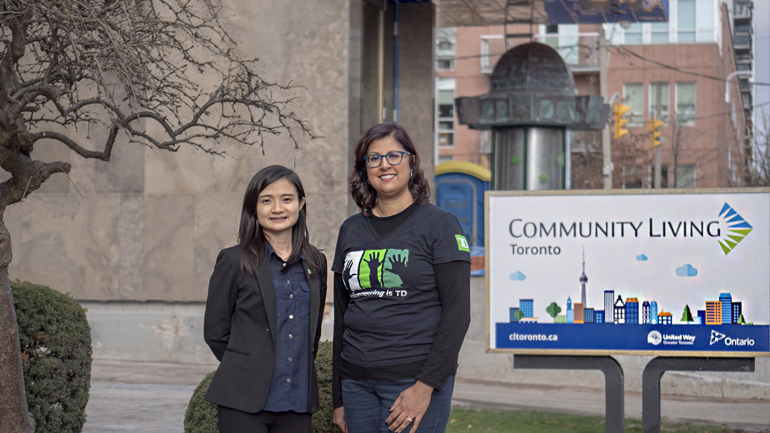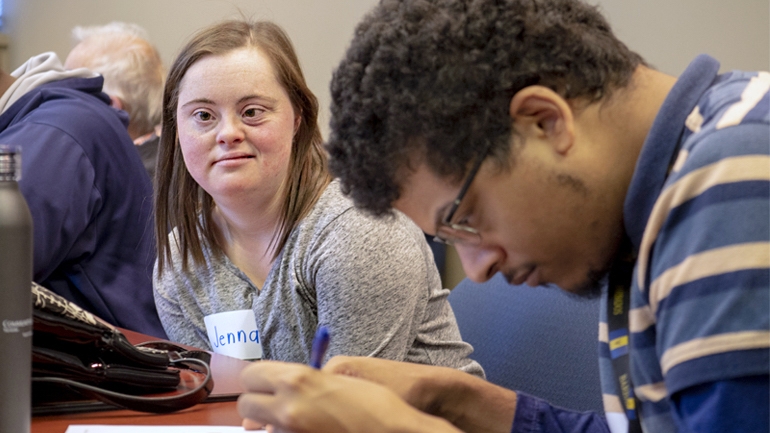Like many students, Jenna Martinuzzi wasn't taught how to spend wisely or budget her money in school.
So, when her mother suggested she take part in a pilot program hosted by TD that is designed to teach students with various abilities about everything from how interest works to the basics of daily banking opportunities, Martinuzzi jumped at the opportunity.
"It's budgeting I struggle with," said Martinuzzi, a public relations and fundraising ambassador who lives in Toronto. "I wanted to learn how to spend wisely, and not overspend on things I don't need, especially makeup. I wanted this program to teach me when it's okay to use my debit and credit cards."
Martinuzzi is one of 12 students taking part in a program called Introduction to Money Matters, which is being piloted at Community Living Toronto in collaboration with ABC Life Literacy Canada and TD. The program is focused on helping students with different intellectual, verbal, physical and nonphysical capabilities learn basic banking skills to help them gain financial confidence.
Martinuzzi's class was taught by Camille Ali, a senior manager at TD who volunteers her time as part of the program. Ali said that in the course, students learn basic banking skills, such as how to budget or how to use a chequing account, skills that many people take for granted.

Isabella Song, Risk Management Associate, and Camille Ali, Senior Manager Risk Marketplace, TD Bank Group
"We can do a better job in explaining how banking services work, how charges work, and how to keep track of changes in your account," Ali said.
"Everyone of us should be taught these things. Learners with diverse abilities are often on a fixed income that is easily consumed by the essentials – rent, groceries, utilities – leaving much less for savings and non-essentials, so they especially need these skills,” she added.
Ali said she likes to spend time with her students before each workshop to learn their names, help them feel comfortable, and to identify the kinds of challenges they face.
"I want to get to know each student and how they prefer to communicate," she said. "Sometimes someone will be typing something into their computer, which then reads it out loud for them, so it's important to know what to expect and how to personalize the course with them."
Some of the most common challenges her students struggle with include finding ways to save money, using ATMs, and understanding their banking rights. Ali said many of her students often miss opportunities to develop their own financial confidence because others are doing their banking for them.
"Students tell me that the hardest part for them is saving for the future, such as retirement, education or large purchases," said Ali. "That's why financial literacy programs like Money Matters are fundamental for financial planning and allows us to help them make better choices and feel in control of their money."
TD is committed to helping support the areas known to have the greatest impact on individual financial security. As part of The Ready Commitment, TD's corporate citizenship strategy, our aim is to increase access to the opportunities people need to improve their financial literacy. Each year, thousands of TD volunteers spend their free time helping people understand how to manage money wisely, so they can achieve their financial goals. For more information on The Ready Commitment, visit www.td.com/TheReadyCommitment.
